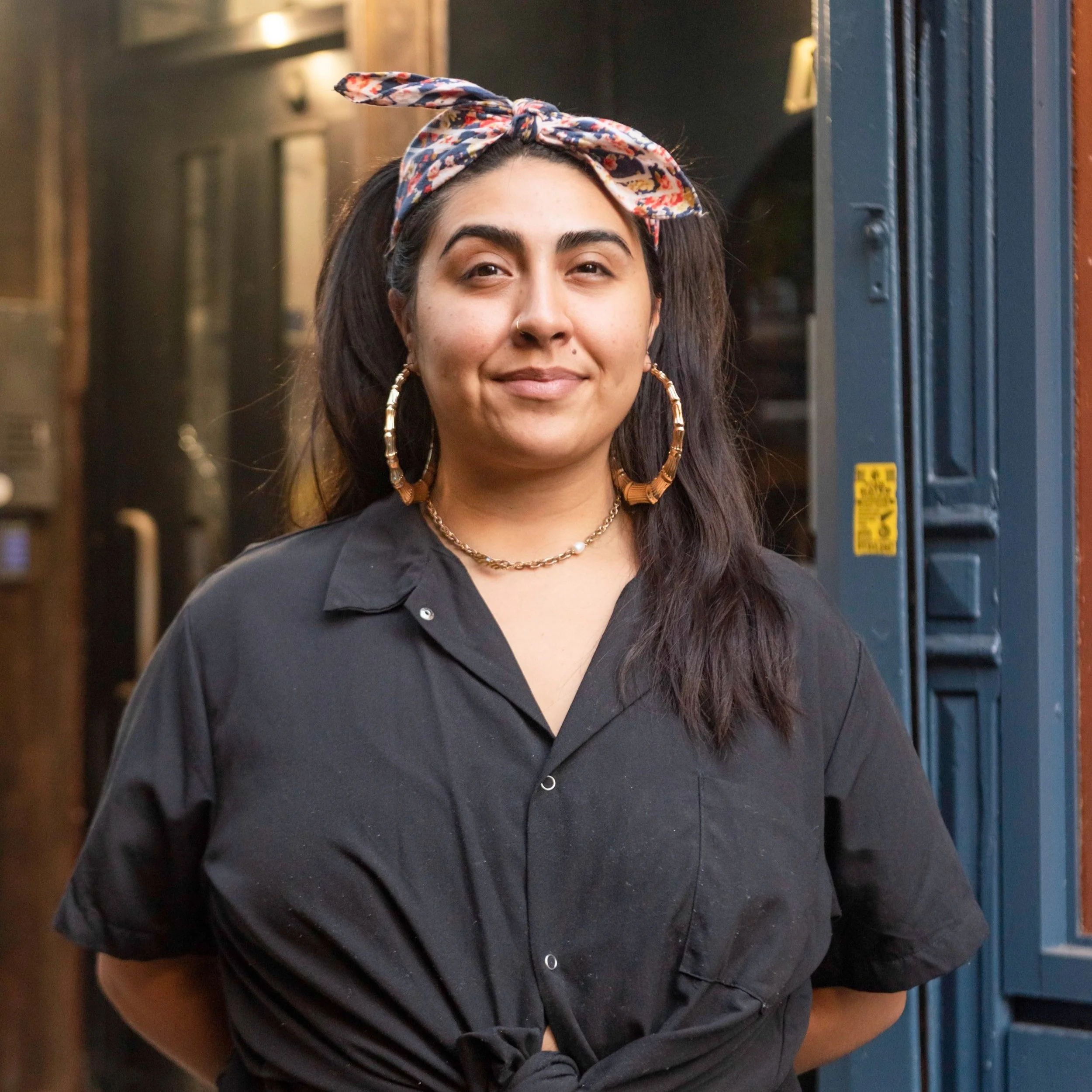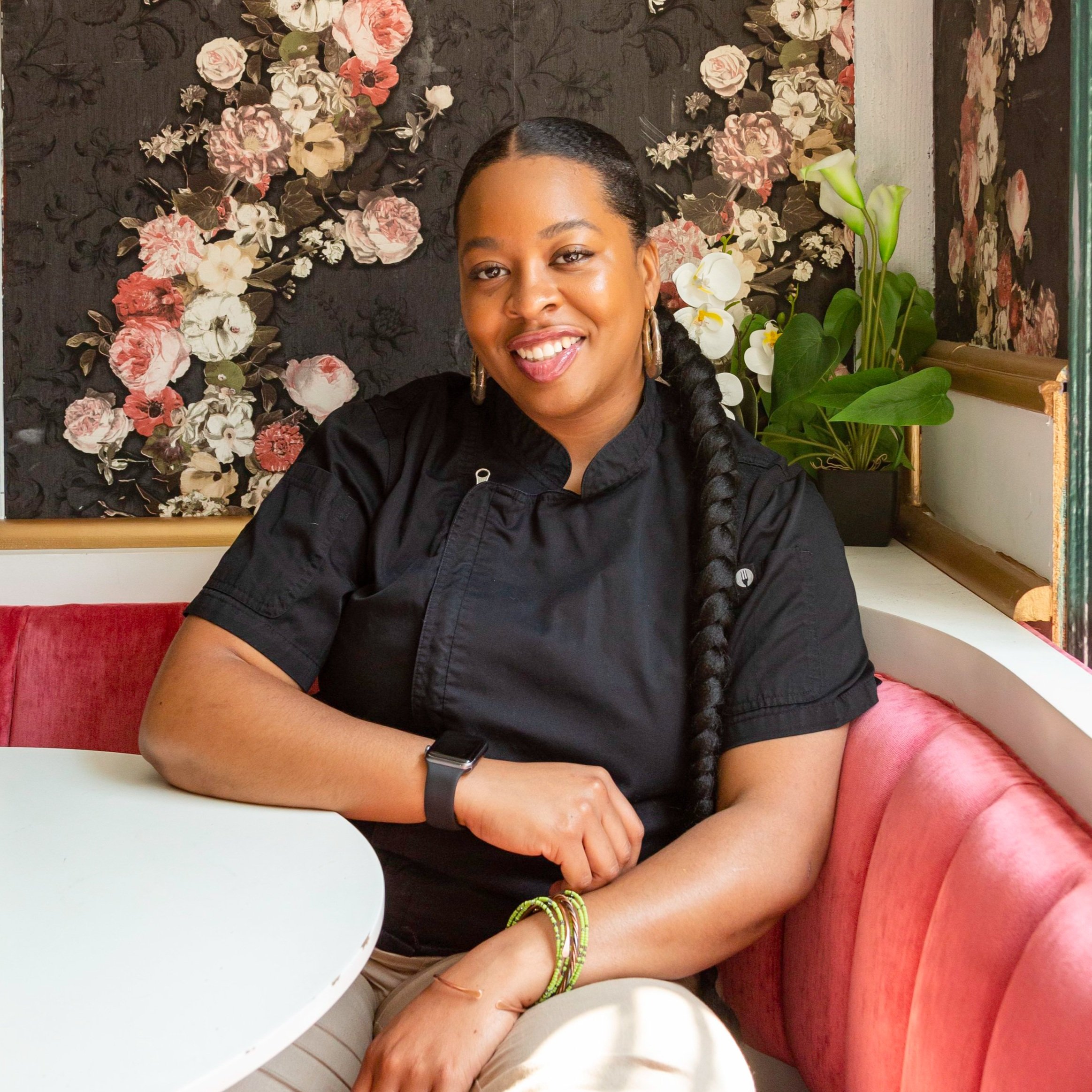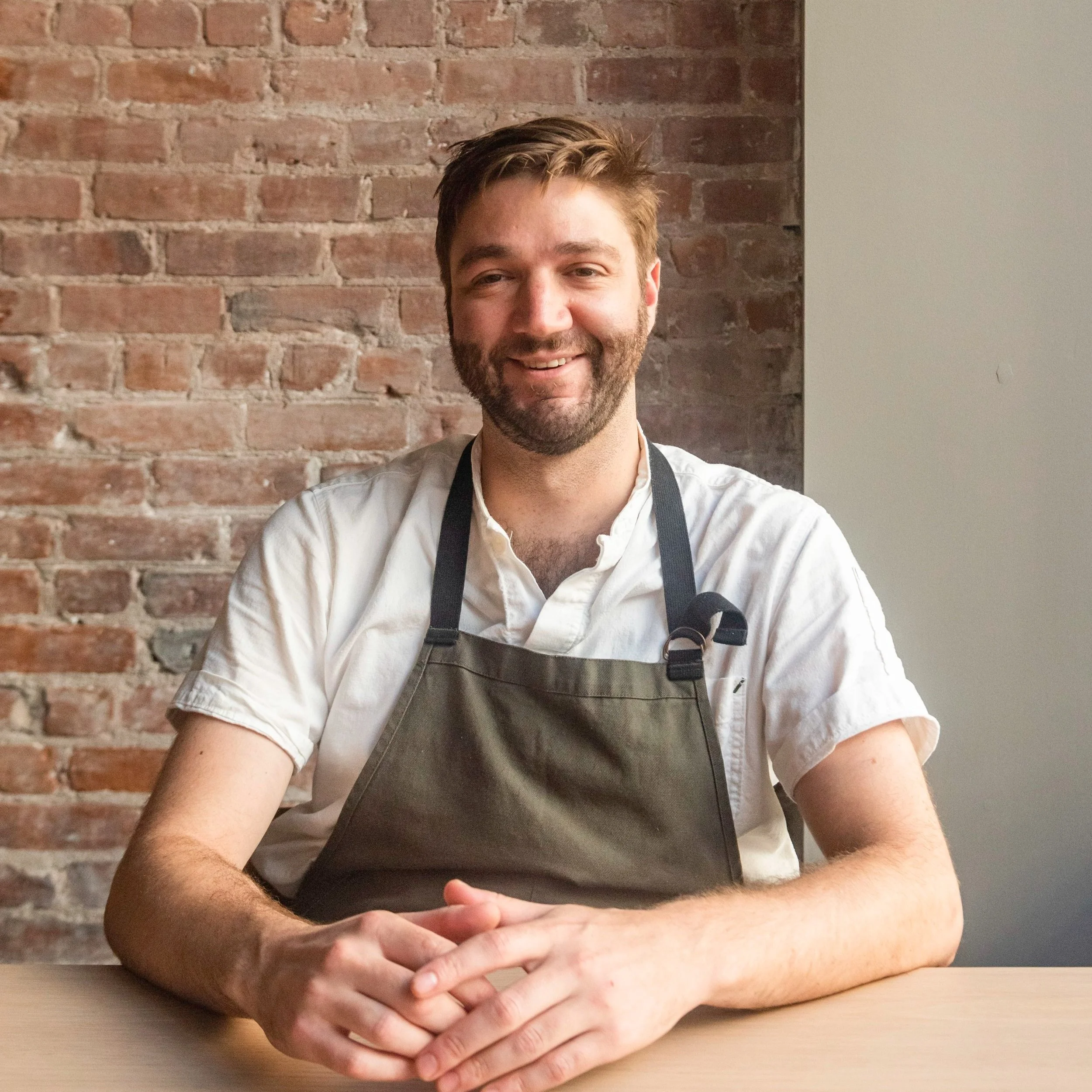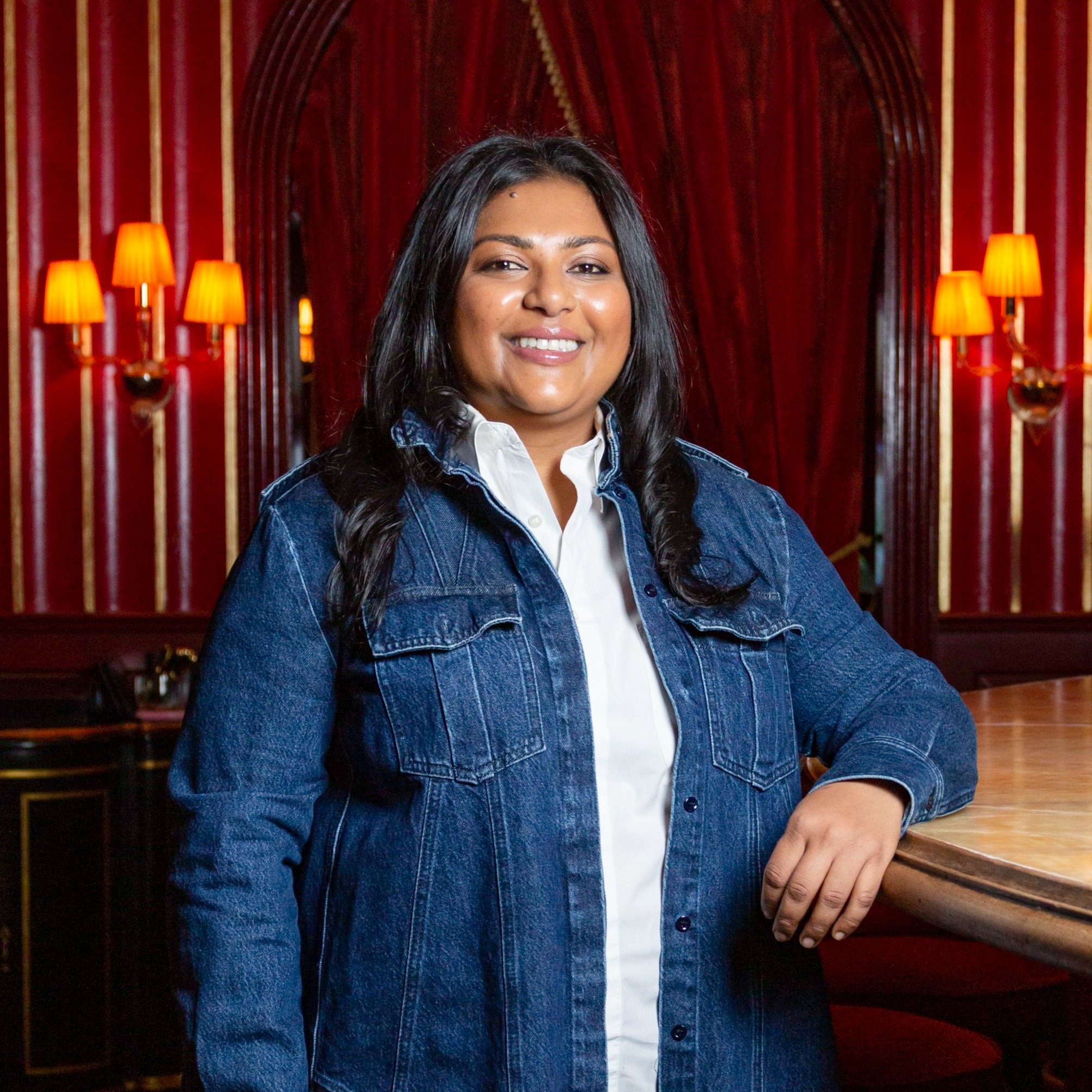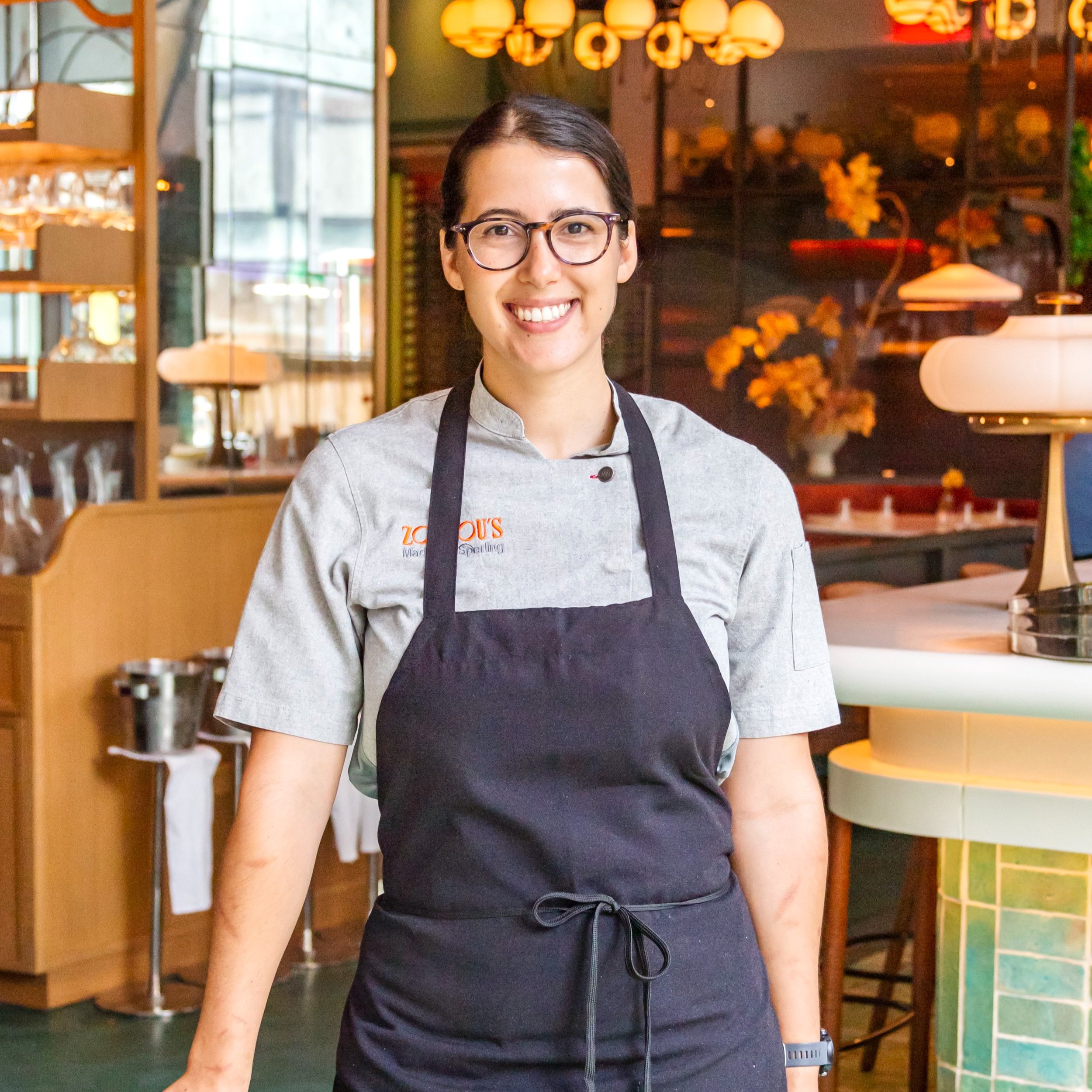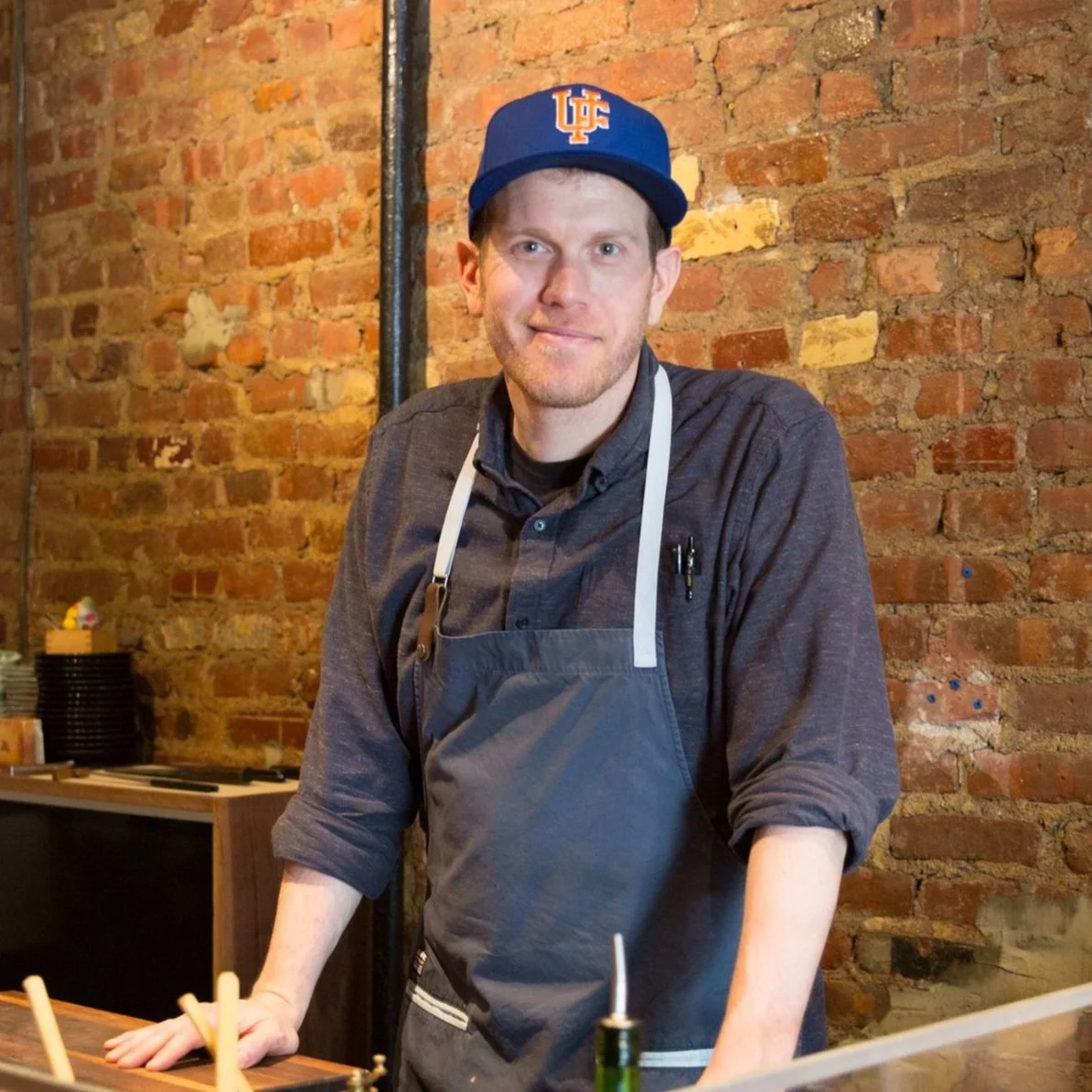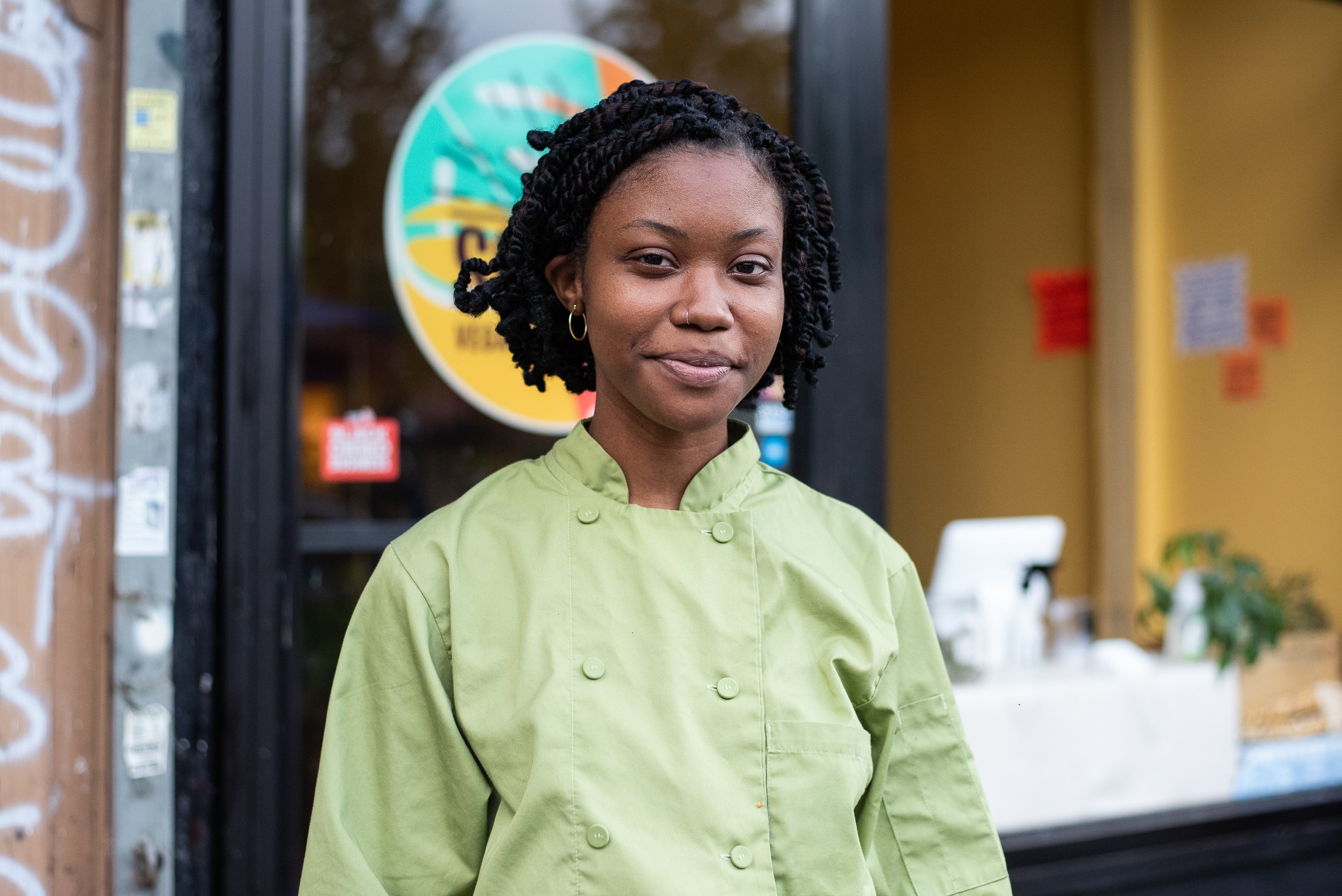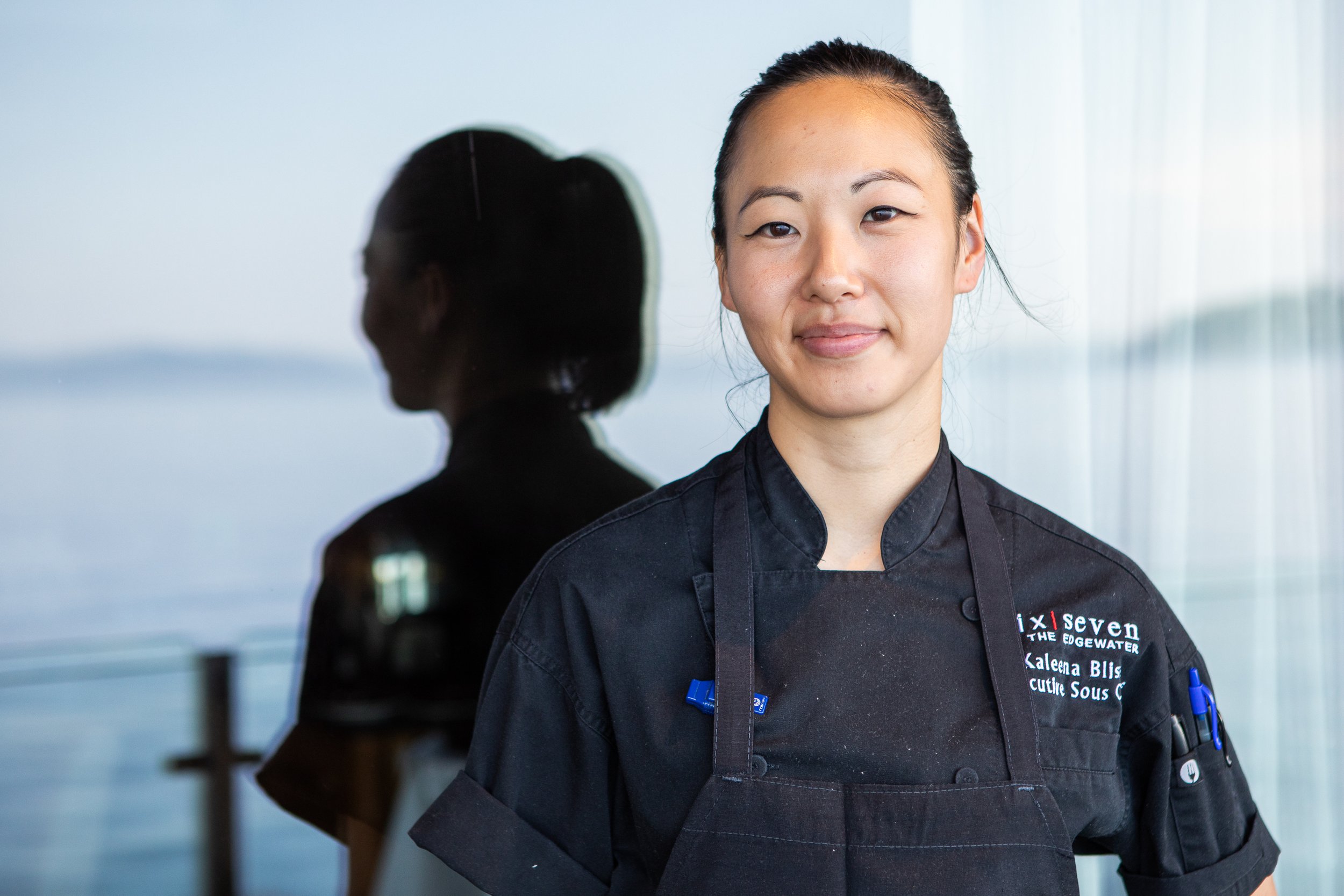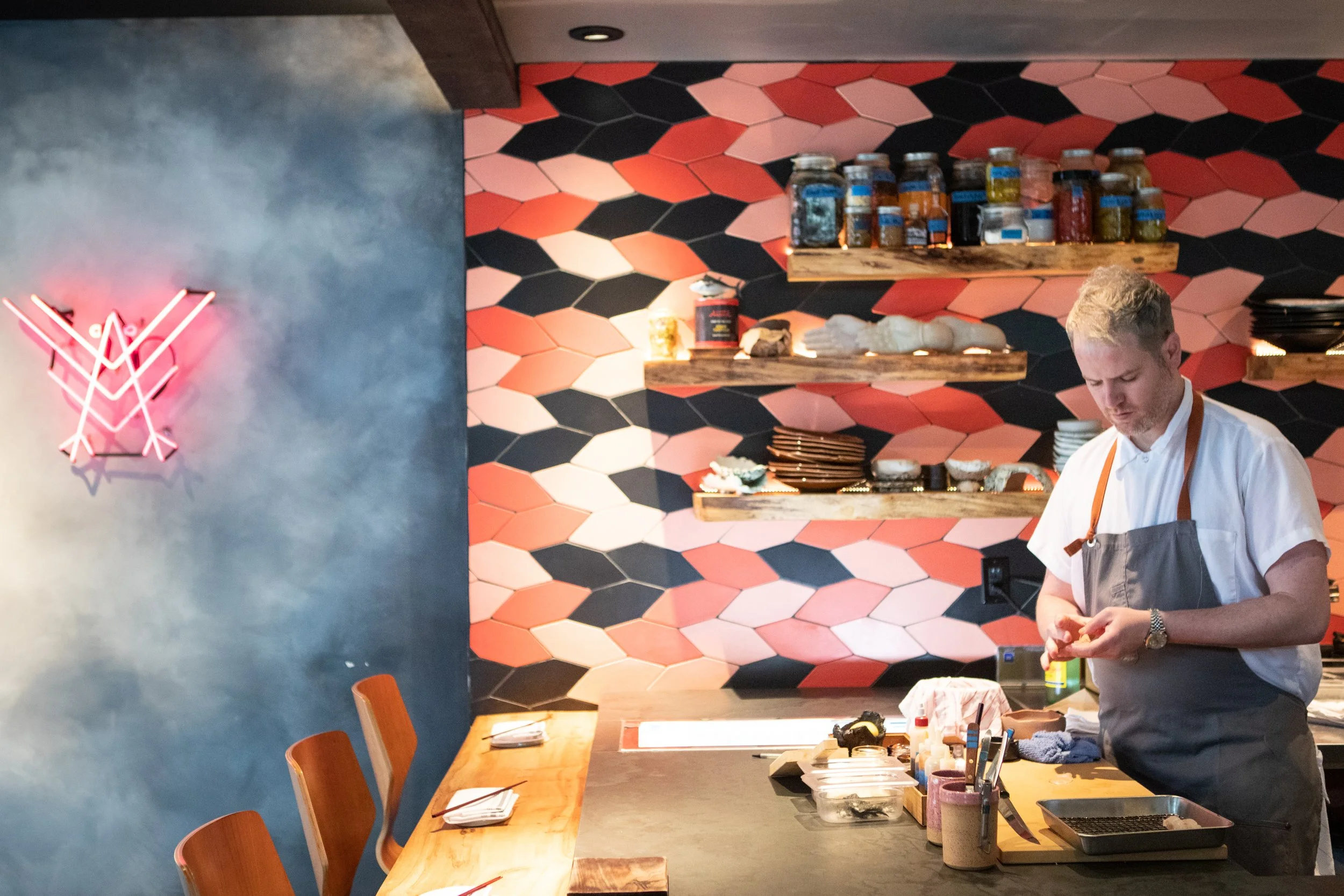Moving Forward: Hospitality Pros On Advancing The Industry
A conversation about finding balance within a changing industry from some of New York's industry professionals.
Going from shut down, to take out, to now mostly back to full service, food and beverage professionals have been challenged with a new set of questions every day, and have embraced them as an opportunity for change. How do you keep your staff happy and healthy? How do you deal with rising food and labor costs while maintaining quality and authenticity? To see how these professionals are striving to make the industry a more welcoming place, while maintaining high standards of quality and service, we asked F&B professionals around New York City how they are pushing their businesses, and their staff, forward.
illustration: Bashel Lubarsky
Chef Xila Caudillo of Rabbit
Since our team is femme-led, it's all about getting hyped for a service with some really fun music, and we've started to go heavy on strong female singers. It gets my team and I in the right headspace to put on our best performances. Plus, it goes deeper than just listening to good music—it's about creating a warm environment for my crew, making sure that though we're at work, they feel confident and grounded. On top of that, our team is very focused on communication and making sure that we're supporting each other and having our needs met. I think part of maintaining a positive culture is being open to hearing when things aren't working. Actually giving my staff space to air those grievances is the only way to maintain a sustainable culture of positivity.
Restaurateur Elyssa Heller of Edith’s
For us, it's not just about a positive workplace culture: it's about creating our own unique Edith's culture. We (my team and I) take it seriously. If we don't create a place that we all want to work at each day, then we are falling short in our mission to do better, and be better. It's something that needs to be nurtured daily and prioritized in all decision-making processes.
Chef Jassimran Singh of Crown Shy
We see thorough and thoughtful training as the best way to not only set expectations for our new team members, but to also hold ourselves accountable for creating a work/life balance from the outset of each team member’s employment. We conduct weekly check-ins with new hires to make sure they feel supported by the management team and to establish an open flow of communication.
Chef Shenarri Freeman of Cadence
Fostering a positive work culture just makes everyone’s life easier. My work experiences, both good and bad, have somewhat shaped my idea of what a kitchen should look like and how it should be run. I think respect, regardless of your position or title in the kitchen, is the first order of business.
Chef Jon Karis of Chambers
Our business model is based on a five-day dinner-only operation. In total there are four stations, four cooks, one sous chef, and myself. The menu consists of five appetizers, five entrées, three desserts, and up to one special in each section per service. The goal is to have a small handful of menu changes a week. This allows the cooks to see new dishes and techniques with some frequency, while also allowing them to hone their skills with dishes that are sticking around for a bit. With this foundation, we are able to train and coach while keeping the line cooks at 45 hours per week.
Pastry Chef Kelly Mencin of Rolo’s
I try to touch as many things as I can—always checking in with my staff, asking how they’re feeling, if they’re happy with how the product is turning out. When a new team member starts training, I keep their to-do list light so they can take their time and learn. It usually means I end up with a bigger list, but I would rather have that than the staff feel the pressure of a heavy list of tasks they've never completed and don't feel comfortable with. Once my staff starts nailing something, I'll add more to the list or add harder projects. It also helps keep them engaged.
Chef Gemma Kamin-Korn of Bar Beau
I would love to see more sustainable hours, where cooks and chefs do not have to give up their lives for their job. That extreme level of dedication is so common and almost expected within the industry that admitting to working a 50 hour week feels shameful. We as chefs often become so enmeshed in our occupation that it defines us. There is little time for hobbies and relationships, and slowly everything falls away. And when we can’t, or won’t, continue on the same unhealthy path, it destroys our entire identity. I have made strides in my own life to create better balance, and I try to encourage and allow my staff to do the same.
Chef Andy Quinn of The Noortwyck
My business partner Cedric Nicaise and I went into opening this restaurant with the firm belief that the most important asset we will ever obtain will be the strength of the team and the people around us. Making our staff always feel supported and heard, whether that is with an open door policy, or something seemingly simple like making sure there is a family meal included for those of our team members with dietary requirements. We offer competitive salaries and wages, along with health insurance. Making our staff feel looked after in the day-to-day goes a long way towards implementing a positive culture.
Chef Nicole Gajadhar of Golden Age Hospitality
I’ve had many mentors to look up to during my career, and I believe I carry some of their same values. I tend to lead by example and truly try to project fairness, compassion, a good attitude, strict morals, listening, and self awareness with my teams. In order to do that, I try to focus on the positives of what we can do together as a team. I really do believe that all skills in the kitchen can be learned, and I encourage my team to share their insights with each other.
Chef Madeline Sperling Formerly of Zou Zou’s
We try to streamline production as much as possible while still serving an ambitious menu. If our team is consistently struggling to complete their assigned tasks during their scheduled working hours, that means I need to revisit those tasks, redistribute them, or rethink whether a complicated technique is paying off in the guest experience. It is a tough balance, but I want the cooks at Zou Zou’s to feel challenged, while also feeling confident and set up for success.
Bartender Ally Marrone of Grand Army
I’d like to see more bars and restaurants value their employees properly by offering a higher hourly rate and encouraging their staff to live a balanced life in and outside of work. I would also like to see the non-alcoholic trend continue on and not fall off. I think it’s been really wonderful to see so many non-alcoholic options made easily available.
Chef Mike Mayo of Laser Wolf
I would love to see more mental health resources offered in the industry. Depression, stress, and anxiety run rampant in kitchen culture, and I feel strongly that a combination of more reasonable hours and more readily available resources will lead to more positivity in kitchen culture at large. These changes will help temper the intensity of the kitchen environment, and allow space for a more holistic and relaxed approach to serving food.
Chef Jeff Miller of Rosella
I train people the way I like to be trained: I’ll explain the long-term goal and share information and techniques a little bit at a time. I let the trainee slowly incorporate new methods without anyone looking over their shoulder too closely.


